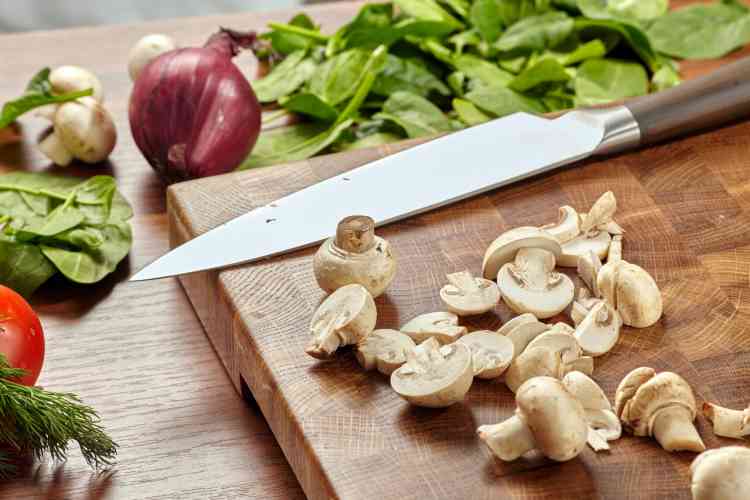For kitchen professionals, taking care of your German knives is vital, as these tools are fundamental to achieving precision and efficacy in cooking. Implementing German knife care guidelines is crucial for ensuring the longevity and optimal performance of these exceptional culinary instruments. This article shares valuable information on how to maintain your German knives in excellent condition, enabling you to excel in your culinary endeavors.

The Significance of Proper Knife Maintenance
In the kitchen, knives are more than mere tools; they are integral to your artistry and expertise. Effective maintenance not only boosts the performance of the knife but also prolongs its lifespan. German knives are celebrated for their precision and durability, but they do require specific care to maintain their cutting edge and overall integrity.
Insights into German Knife Construction
German knives are made from premium materials, mainly high-carbon stainless steel, which provides an excellent combination of strength and resistance to rust. The intricate design process, as detailed in articles like Japanese Steel vs German Steel, showcases the distinctive features that set German knives apart. Recognizing these traits is essential for effective maintenance.
Key Care Practices
Regular Cleaning and Drying
Once you finish using your knife, its important to clean it immediately using mild soap and warm water. Steer clear of abrasive materials or harsh detergents that might harm the blade. Make sure the knife is thoroughly dried afterwards to avoid rusting, a critical step noted in knife maintenance mistakes.
Sharpening and Honing
To sustain the renowned sharpness of German knives, regular honing is essential. Invest in a quality honing steel and adhere to the manufacturers instructions to realign the blades edge. Sharpening should happen less frequentlytypically every few months, depending on how often you use the knife.
Optimal Storage Solutions
Proper storage of your knives is just as important as their use and cleaning. Use a magnetic strip, knife block, or sheath to safeguard the blade from damage. This practice also enhances safety in the kitchen, minimizing the risk of accidents.
Advanced Maintenance Recommendations
Professional Sharpening Services
While you can hone your knife at home, its advisable to seek professional sharpening services periodically to ensure the blade's angle and sharpness are preserved. Experts can restore your knife's edge to its original precision.
Understanding Knife Patina
When high-carbon steel knives develop a patina, it offers a unique look and additional protection against rust. This natural occurrence is not a flaw, but rather a delightful aspect that enhances the character of the blade.
Exploring Knife Materials and Their Care
German knives are often contrasted with their Japanese counterparts, highlighting distinct differences in construction and maintenance needs. For a more comprehensive understanding, view this insightful article on knife maintenance schedules.
High-Carbon Stainless Steel
This material is favored for its balance of durability and rust resistance. Regular upkeep is essential to prevent corrosion and maintain the blades integrity.
Full Tang Construction
Full tang knives provide an excellent balance and stability, improving control during cutting tasks. It is crucial to ensure that the handle remains clean and intact for optimal functionality.
Conclusion
For culinary professionals, mastering German knife care tips is essential to uphold the quality and efficacy of these invaluable tools. By comprehending their construction and adhering to proper maintenance practices, you can keep your knives sharp, safe, and efficient for many years. To delve deeper into the traditions and craftsmanship of German knives, explore the rich history detailed in Solingen, Germany.

FAQs
How often should I sharpen my German knife?
It varies based on usage, generally sharpening every few months, along with regular honing in between.
Can I use a dishwasher to clean my German knives?
No, dishwashers can harm both the blade and the handle. Its best to hand wash with mild soap and dry immediately.
What is the best way to store German knives?
Utilize a magnetic strip, knife block, or sheath to protect the blade and ensure safety.


























